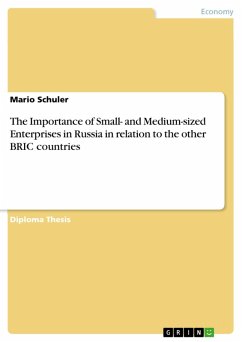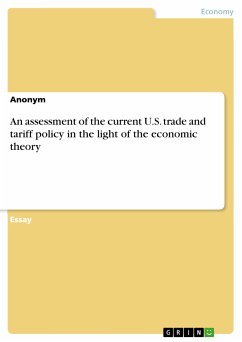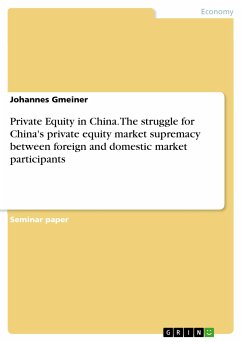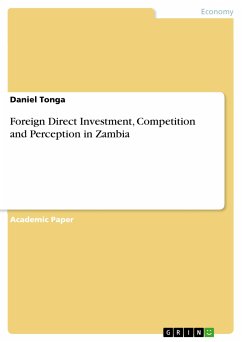
Multinational Enterprises and their hosts: An 'impact' assessment on the United Kingdom (eBook, PDF)

PAYBACK Punkte
0 °P sammeln!
Seminar paper from the year 2004 in the subject Economics - International Economic Relations, grade: 1,0 (A), Leeds Metropolitan University (Leeds Business School), course: International Business, language: English, abstract: The desire to attract inward investment is one of the few industrial policies pursued consistently by successive UK governments over the past twenty five years. (Pain, N.) It is widely recognized that foreign direct investment (FDI) may play a significant role in helping to transfer leading-edge skills, technologies, management styles and other best practices to host econ...
Seminar paper from the year 2004 in the subject Economics - International Economic Relations, grade: 1,0 (A), Leeds Metropolitan University (Leeds Business School), course: International Business, language: English, abstract: The desire to attract inward investment is one of the few industrial policies pursued consistently by successive UK governments over the past twenty five years. (Pain, N.) It is widely recognized that foreign direct investment (FDI) may play a significant role in helping to transfer leading-edge skills, technologies, management styles and other best practices to host economies. (Potter, J. & Moore, B. & Spires, R., 2003) However, research that has assessed the benefits (and costs) of attracting foreign direct investments into host states and regions demonstrates that foreign firms, even within the same industry sector, may differ considerably in their ability to contribute to host regions' economies. (Potter, J. & Moore, B. & Spires, R., 2003) This work will assess the impact of Multinational Enterprises on the British economy . With regards to Daniels, J. & Radebough, L. (2004) "a company that has a worldwide approach to markets and production is known as an MNE. It usually undertakes nearly every type of international business practice." For the purpose of this work a MNE will further be defined as a company who owns and controls assets. The report is fundamentally structured into three parts. First there will be given a brief overview about foreign direct investment flows into the United Kingdom. The second part will analyse the cost and benefits of FDI for the United Kingdom both in theoretical and empirical terms. Based on the assessment the last section will suggest policy implications. The work is based on secondary research to a large extent.
Dieser Download kann aus rechtlichen Gründen nur mit Rechnungsadresse in A, B, BG, CY, CZ, D, DK, EW, E, FIN, F, GR, HR, H, IRL, I, LT, L, LR, M, NL, PL, P, R, S, SLO, SK ausgeliefert werden.













